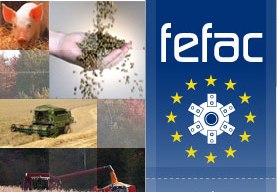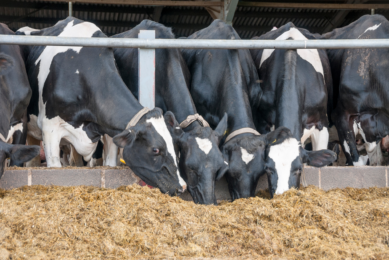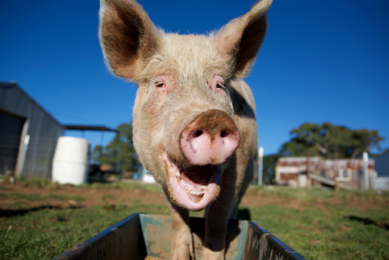European feed makers consider the environment

Fefac, the European organisation for feedmillers, has released its first environment report on industrial compound feed as a contribution to the evaluation and improvement of the sustainability of EU livestock production.
The report was presented on 9 Wednesday by Fefac president Pedro Corrêa de Barros and Ad Hectors, Member of the Fefac Presidium in charge of sustainability.
Ad Hectors stressed that “EU compound feed manufacturers are fully aware of the impact of EU livestock production on the environment and the contribution of feed consumption to that impact.”
“A number of initiatives have been taken by compound feed manufacturers, either individually or collectively, at national or European level, to improve the environmental performance of their feed,” he said
The Fefac Environment Report provides an overview of the different angles under which the environmental sustainability of industrial compound feed should be considered.
This will be useful not only for EU compound feed manufacturers but also to anyone interested in knowing more about the sustainability of EU feeding systems, including livestock chain partners, environment organisations and policy makers.
The 28-pages report investigates the environment impact of feed production and feed use through 3 main topics:
- The sustainable management of feed resources (e.g. impact of soybean production, fishmeal & fish oil production and use, valorisation of by-products from the food and biofuel industry);
- Climate change & energy use (methodology for calculation of the carbon foot print and evaluation of the environmental impact of production and consumption of feed, energy use in feed mills, etc.) and
- Feed safety (detoxification of feed resources, preservation of hygiene status through good manufacturing practices).
The report also provides examples of initiatives across the EU aiming at gathering information and also at providing operators with tools to improve their environmental performance.
Modern farming versus climate change
Pedro Corrêa de Barros underlined that “consumers often get the impression that modern livestock production systems are not compatible with climate change objectives. “This is simply not true and an increasing number of studies tend to prove this point.
“The challenge as highlighted by FAO is to manage as well as possible the agricultural resources to ensure food security and be able to supply twice as much animal products as today within the next 40 years at global level, while minimizing impacts on the environment per unit of animal product,” the Fefac president said.
“I do believe that this may only be achieved through ecologically intensive livestock production systems based on efficient compound feed supply.
“We have a role to play as Fefac to share this vision with our chain partners and public authorities, with a view to the International Conference on Climate Change in Copenhagen.
“This Environment Report is our first contribution to the upcoming EU and international debate and the work of the EU Food Chain Round Table on Sustainable Consumption and Production of which FEFAC is a founding member,” Corrêa de Barros ends.
The report is available here at the Fefac wegsite











